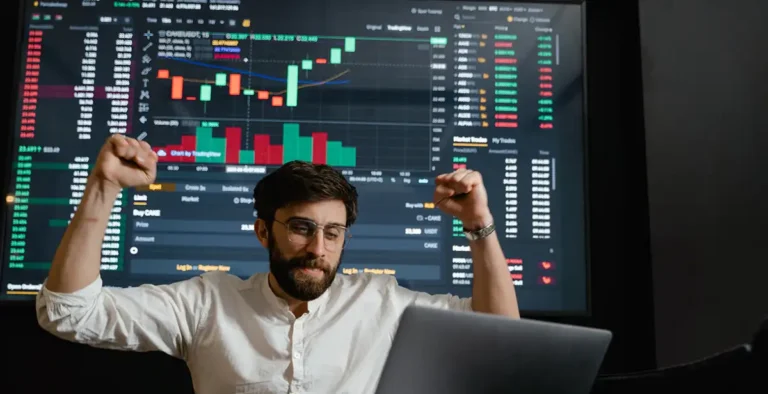How to Get Started in Trading from Scratch
Complete Guide to Successful Trading Start-Ups
Trading has evolved significantly over the last decade, thanks to technological advances that have allowed more people to access the financial markets. From the convenience of your mobile device to Telegram trading signals and Forex strategies, there are numerous ways to dabble in the world of trading and potentially generate profits. In this article, we’ll explore how to get started in trading from scratch, trading tools, effective strategies and tips for success.
How to get started in Trading
Getting started in trading doesn’t require a degree in finance or a massive initial investment. Here are some key steps to start your journey:
- Market Choice: Decide whether you want to trade in the foreign exchange market (Forex), stocks or even the stock market. Each market has its own characteristics and risks.
- Trading Platforms: Look for reliable trading platforms that offer a user-friendly experience on both web and mobile devices. Trading apps and platforms such as MetaTrader 4 (MT4) or MetaTrader 5 (MT5) allow you to practice risk-free trading before investing real money with their MT4 Demo or MT5 Demo version. These are examples of free trading platforms.
- Choosing a Strategy: Research and choose a trading strategy that suits your style and objectives.
Leveraging Telegram and Forex Signals
Social media and messaging platforms like Telegram have revolutionized how traders share information. Telegram groups and channels offer “Forex signals,” which are trading suggestions based on expert analysis. However, it is important to research and verify legitimacy before following any signals. If you want to stay up to date on forex trading, join our telegram trading community.
Trading Journal
Keeping a journal is essential to evaluate your trading progress. Write down your trading operations, strategies implemented and the emotions that arose from each trade. Reflecting on your successes and failures through your journal will provide you with valuable lessons to improve your approach and make more informed decisions in the future. The best way to learn is to make mistakes, so when you run into that situation you wrote down, you won’t trip over the same stone again.
Key Tips for Success:
Successful trading is not just about knowing the markets and strategies, but also about adopting the right mindset and approach that allows you to make rational decisions and maintain discipline in adverse situations. Here are some fundamental tips that can make a difference in your trading career:
1. Continuous Education: Never underestimate the power of knowledge. Spend time constantly learning about the financial markets, economic trends and the most effective trading strategies. Continuing education gives you the foundation to make more informed decisions and adapt to changes in the markets. Trading will always be a professional subject in which the trader will be forced to continually recycle himself, as over the years and even months, new strategies emerge, markets change, new assets appear…
2. Establish a Solid Trading Plan: Before you begin any trade, clearly define your trading plan. Establish your objectives, the level of risk you are willing to take, the entry and exit criteria for trades, and how you will manage your trades in different scenarios. Following a plan helps you avoid impulsive decisions based on momentary emotions.
3. Practice Discipline: Discipline is the key to avoid falling into emotional traps. Follow your trading plan rigorously and avoid deviating from it even if the market becomes volatile or uncertain.
4. Effective Risk Management: Risk management is the foundation of profitable trading. Never invest more than you can afford to lose in a single trade. Use stop-loss (SL) orders to limit losses and take-profit (TP) orders to lock in profits.
5. Emotional Control: Trading can be emotionally challenging, especially when trades do not go as expected. Greed and fear can cloud your judgment and lead to impulsive decisions. Practice self-awareness and emotional control. If you feel that emotions are influencing your decisions, take a step back and evaluate the situation objectively. Psychology is a fundamental pillar in achieving profitability in trading.
6. Focus on Long-Term Consistency: Successful trading is not about winning every trade, but about maintaining consistency over time. Even successful traders have losing trades. Evaluate your success based on your long-term performance and don’t be discouraged by sporadic setbacks.
7. Evaluate and Learn: Treat every transaction, whether a winner or a loser, as an opportunity to learn.
Successful trading is a combination of knowledge, discipline and mentality. It requires patience, dedication and a constant willingness to learn and improve. Remember that every trader has his or her own path, so it is essential to find what works best for you and adjust your approach according to your experiences and goals.
Share this article:







